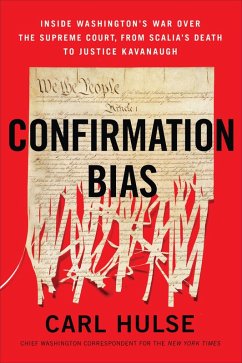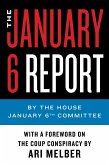This account of the machinations following Justice Antonin Scalia's death, and their damaging effects, is "a gripping tale of insider Washington" (The Boston Globe). In this book, the Chief Washington Correspondent for the New York Times provides a richly detailed, news-breaking, and conversation-changing look at the unprecedented political fight to fill the Supreme Court seat made vacant by Antonin Scalia's death-using it to explain the paralyzing and all but irreversible dysfunction across all three branches in the nation's capital. The embodiment of American conservative jurisprudence, Scalia cast an expansive shadow over the Court for three decades. His unexpected death in February 2016 created a vacancy that precipitated a pitched political fight that would change not only the tilt of the court, but the course of American history. It would help decide a presidential election, fundamentally alter longstanding protocols of the Senate, and transform the Supreme Court-which has long held itself as a neutral arbiter above politics-into another branch of the federal government riven by partisanship. In an unheard-of development, Senate Majority Leader Mitch McConnell refused to give Democratic President Barack Obama's nominee, Merrick Garland, a confirmation hearing. Not one Republican in the Senate would meet with him. Scalia's seat would be held open until Donald Trump's nominee, Neil M. Gorsuch, was confirmed in April 2017. Hulse tells the story of this battle to control the Court through exclusive interviews with McConnell, Harry Reid, Chuck Schumer, and other top officials, Trump campaign operatives, court activists, and legal scholars, as well as never-before-reported details. Confirmation Bias provides much-needed context, revisiting the judicial wars of recent decades to show how they led to our current polarization. He examines the politicization of the federal bench and the implications for public confidence in the courts, and takes us behind the scenes to explore how many long-held democratic norms and entrenched bipartisan procedures have been erased across all three branches of government. Includes a new afterword "An absorbing, if dispiriting, look at the maneuverings of inside players like McConnell and Donald McGahn, Trump's first White House counsel, and outside advocates like Leonard Leo of the Federalist Society, who appears to have steered judicial selection as much as anyone in the White House." -The Washington Post
Dieser Download kann aus rechtlichen Gründen nur mit Rechnungsadresse in A, B, BG, CY, CZ, D, DK, EW, E, FIN, F, GR, HR, H, I, LT, L, LR, M, NL, PL, P, R, S, SLO, SK ausgeliefert werden.









